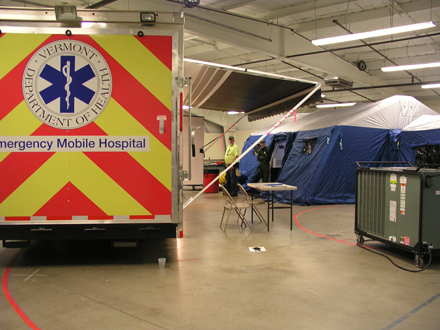Improving Statewide Coordination
- Created, by Executive Order, the Opioid Coordination Council (OCC), with a mission to strengthen and expand Vermont’s response to the opioid crisis through prevention, treatment, recovery and enforcement, while improving coordination across all state and local entities with a role in addressing the crisis.
- Created the new position of Director of Drug Prevention Policy to align the delivery of services within state government, oversee the OCC and work with communities across Vermont to implement strategies.
- Repurposed the Vermont Agency of Education’s Tobacco Use Prevention Coordinator position into a Substance Use Prevention Coordinator, allowing the State to address a wider range of prevention efforts in our schools.
- Worked with the Attorney General to come to an agreement that assured at least $14 million from a 2018 tobacco settlement went to addressing this crisis.
- Proposed and passed legislation to strengthen our approach to substance abuse prevention by better aligning prevention-focused programs and initiatives, and permanently establishing the position of Chief Prevention Officer to coordinate programs across the state.
Expanding Substance Use Disorder Treatment Workforce
- Coordinated a statewide substance use disorder workforce summit in April 2017, hosting more than 150 health, education and policy stakeholders to collaborate on solutions to substance abuse disorders, with a focus on increasing professionals in the treatment and recovery fields.
- After working with the Secretary of State's Office of Professional Regulation (OPR), providers and industry stakeholders, reformed administrative rules governing licensed treatment professionals. These reforms increased the efficiency of the licensing process, allowing for expansion of this sector of the workforce.
Expanding Access to Treatment
- Worked with partners and providers to expedite opening of the St Albans Hub (including opening of a temporary hub at Northwest Medical Center). These efforts supported the hard work of providers and treatment professionals across the state, helping bring the Chittenden County treatment wait list to zero, which created the capacity statewide to get people into treatment quickly.
- Secured an amendment to Vermont’s Global Commitment to Health 1115 Demonstration waiver, allowing Medicaid to pay for inpatient residential treatment for addiction.
- Expanded Medication Assisted Treatment to a 120-day continuation at all Department of Corrections sites.
- After Maple Leaf Treatment Center in Underhill had to close its doors in February 2018, the Agency of Human Services partnered with Valley Vista and the Recovery House Network in Rutland to ensure there would not be a gap in inpatient treatment capacity.
Employment & Recovery
- Launched a new initiative to have Vermont Department of Labor employment counselors make regular visits to all of Vermont’s recovery centers, providing services and guidance to help those in recovery find and keep jobs.
Protecting Children Impacted by the Crisis
- Proposed and passed investment of $500,000 for a child protection initiative within DCF, which supports parent-child contact and will help reduce the backlog of court cases involving children affected by the opioid epidemic.
- Proposed and passed increased investment in the guardian ad litem program, which supports children in the court system.
Working to Reduce Supply
- The Vermont Drug Task Force, in partnership with federal and local law enforcement, has concluded multiple significant drug trafficking investigations involving illegal opioids and other narcotics, resulting in the arrest of over 200 individuals for narcotics violations. These investigations targeted Vermonters responsible for distributing narcotics, including heroin, and facilitating the distribution of illegal drugs by out-of-state suppliers.
- The Department of Public Safety has secured a $1.3 million Department of Justice Grant to combat heroin trafficking in Vermont.
- In partnership with the Drug Enforcement Administration and local law enforcement, promote and participate in “Drug Take Back” days, which aim to provide a safe, convenient and responsible means of disposing of prescription drugs, including unused opioids. In the last 18 months, nearly nine tons of unused prescriptions, including opioids, have been safely disposed of by Vermonters.
- Establishing prescription drug disposal sites at all ten Vermont State Police Barracks.

